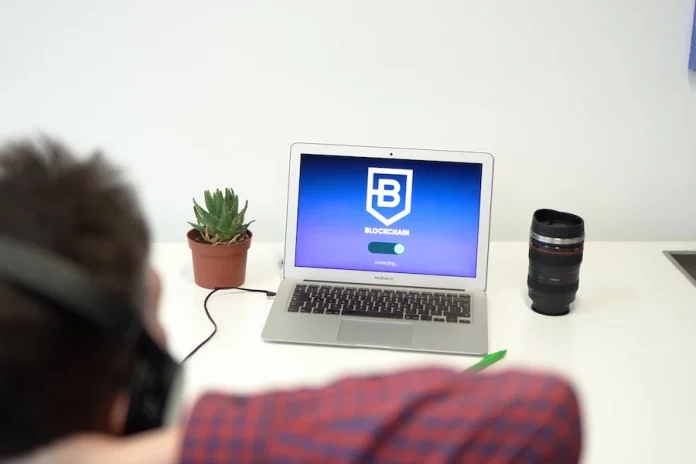The world of cryptocurrency and online wallets can seem diverse and somewhat overwhelming. Whether with the Ownrwallet company or other Crypto wallets, robust cybersecurity is critical to safeguarding your digital currency. Perhaps you want to invest in cryptocurrencies, but you have no idea what a cryptocurrency wallet is or which cryptocurrency wallet is the best. In this article, you’ll learn how to keep your wallet secure and will discover the benefits and drawbacks of various wallet services, including apps, hardware wallets, and website services.
What Is A Cryptocurrency Wallet?
All your cryptocurrency keys are kept in cryptocurrency wallets. Cryptocurrency wallets can send and receive money and keep track of transactions. They can be tangible objects, computer software, or even paper. They resemble vending machines in public areas in that anyone can put money in them, but only those with the keys to the device can take it out. Numerous different types of cryptocurrency wallet services exist. There are options for web-based, offline, and app-based cryptocurrency wallet services.
Are Cryptocurrency Wallets Anonymous?
Wallets for cryptocurrencies are not anonymous. The public key they provide you with serves as your pseudonym. A trade in conventional currency links this public key (and all of its activity) back to you and allows the tracking of this public key’s activity.
Even if you decline to withdraw money in US dollars, you can be identified based on the activity on your wallet. With crypto, you continue to have a digital identity. A public key that changes with each transaction, additional data encryption, and VPNs for each transaction are some of the mechanisms used by some wallets to help you maintain your anonymity. Additionally, some wallets don’t require you to give any personal information.
The Importance Of Protecting Your Crypto
Investing in cryptocurrency is not easy. To purchase various cryptocurrencies, you must get a crypto wallet and place funds into an exchange – and we’re not even going to discuss transfers between banks. Investing in cryptocurrencies can be simple when all the moving parts function. But if one component breaks down, the entire system stops.
Your smartphone, hard drive, or removable storage becomes the bank vault in your world of cryptocurrencies. Decentralisation has had that effect. People have become more independent thanks to cryptocurrency because it eliminates the middleman (banks and governments), but there are risks involved.
How To Secure A Crypto Wallet
Although cryptocurrency is becoming more and more popular, the security risks are also expanding. Attackers can make more money from cryptocurrencies as more people invest in them. Since the crypto exchange theft epidemic began in 2013, about $3.2 billion has been taken from them. There have been roughly a dozen incidents, resulting in an estimated loss of over $550 million over the past few years.
Hackers have numerous methods for obtaining cryptocurrencies, including stealing or guessing a password, breaking into an exchange platform, using phishing scams, and more. The most frequent attack, nevertheless, is the theft of a crypto wallet’s private keys. There are numerous things you can do to secure Bitcoin and lower your risk level, even though it’s probably not possible to be 100% secure against every potential assault.
Different wallets offer varying levels of security. Some of these wallets include Trust Wallet, Exodus, Breadwallet, and the likes. Regardless of the type, below are various ways you can secure your crypto wallet.
To buy or sell, use an established wallet or exchange.
Recognise that some exchanges are more secure than others before you perform any transactions. Do research on which cryptocurrency exchanges have previously been breached since if the exchange has been compromised, it indicates weak security procedures or current weaknesses, putting your investment at risk.
You risk losing your holdings if your cryptocurrency exchange is compromised because most of them aren’t required by law to protect your money in the event of a cyberattack. Choose an exchange that follows security best practices, such as mandating multi-factor authentication (MFA) and TLS/SSL encryption, for this reason.
Frequent Software Update
Older software has flaws that hackers can use to access your devices. This holds for all your software, not just the crypto software. To keep your data secure, including your cryptocurrency, install patches and updates whenever they become available.
Use the most recent software on any device you choose to use. Updates can be set to install automatically. Ensure that your device, including any loaded applications, is up to date. Using endpoint security tools like anti-virus software and anti-malware is equally vital.
Secure Your Email and Devices
The best means to secure your digital currency is to secure your devices. Take into account desktop and mobile defence since one weak point can jeopardise the entire system.
Use Multisig and 2FA
With crypto, two-factor authentication is essential. If you want an extremely secure cryptocurrency wallet, enable multisig transactions. Additionally, there is no “forgot my password” link in crypto wallets, so be sure to create a strong password that you won’t forget.
Don’t Use Public WiFi
Avoid using public WiFi to access your cryptocurrency accounts or online exchanges. Use a VPN whenever you can to obfuscate your location and IP address. Any device can be used with a VPN to protect your data privacy and prevent listening or activity tracking. An encrypted tunnel is effectively created by a VPN, allowing you control over your data while maintaining the confidentiality and security of your online activity. Additionally, you want to incorporate this into all your online security procedures, not only for Bitcoin trading.
Keep Your Wallet’s Details Private.
Sharing your cryptocurrency investing triumphs on social media may be alluring, but doing so is essentially asking attackers to target you. Many cryptocurrency traders choose to trade invisibly to conceal their identities completely. You shouldn’t share information on social media about your trading activities, the exchange you are using, or your profits or losses.
Conclusion
Be sure to consider wallet security so that you don’t become a victim and have your wallet compromised. You don’t want someone to steal your valuable cryptocurrency, do you? Be accountable, use a trustworthy wallet service like Ownrwallet, and protect your cryptocurrencies!












